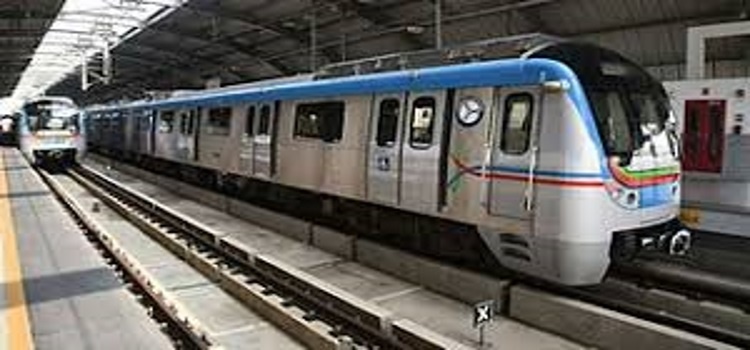
Two Metro rakes built by a ICF/Perambur and are touted to be the future workhorses of an ageing fleet on Kolkata Metro have flunked a radio frequency emission test after spending eight months waiting for a trial run.
The rakes had arrived from the Integral Coach Factory (ICF) in Perambur in July 2017 without confirmation of how they would fare on the tracks because the manufacturing unit does not have facilities for a proper trial run.
A test conducted over two nights last week showed the rakes generating higher radio frequency waves than permissible. Engineers said this could disrupt Metro Railway’s signalling system along with mobile phone and television signals.
A radio frequency emission test is one of the basic requirements for electromagnetic compatibility compliance of most electronic and electrical products. Everything from phones, service equipment and modern technological products go through this process. The purpose of these tests is to ensure that other users are protected from the emissions generated when the product is used in their neighbourhood.
This is not the first time that the quality of rakes manufactured at ICF has been called into question. The 13 existing air-conditioned rakes built there have a history of niggles and the occasional breakdown.
Chennai Metro, a joint venture between the central and state governments, has ordered rakes from Brazilian manufacturer Alstom rather than the Perambur factory, located barely 8km from the Tamil Nadu capital. “We placed an order for 33 rakes with Alstom after a global tender. The first four rakes were manufactured in Sao Paulo but the rest will be built by the company in Chennai itself,” an official said.
Sources attributed Metro Railway’s continued dependence on ICF, about 1,600km from Calcutta, to their shared parentage. “More orders have been placed with ICF for AC rakes as this is an indigenous company,” a senior official in the railway ministry said.
The Chinese locomotive company Dalian is also building rakes for Metro Railway, the first of which has already cleared trial runs and is ready for delivery, sources said.
Dalian had won a contract for 14 rakes after the Railway Board invited global bids in 2015.
An official said Metro Railway had been waiting for the new lot of rakes built in Perambur to get the mandatory safety clearance before taking delivery of the Chinese prototype.
Both rakes failing the radio frequency emission test means a new hiccup for the transport lifeline.
“These rakes should generate 20 kilohertz of radio frequency waves but they are emitting more than that. This can lead to the signalling system malfunctioning by turning red or yellow when it is meant to be green or vice-versa,” an official representing ICF said.
The new trains have a series of switches within their electronic circuits that are turned on or off when the speed increases or reduces and the rakes start or stop. This process generates radio frequency waves, the official explained.
Metro Railway is different from newer mass transit systems in terms of power supply, which comes through the third rail along the tracks.
The third rail generates 750 volts of DC current, much less than modern Metro systems that function with 25 kilovolt of AC current. Engineers suspect this is one of the reasons why the new rakes are not compatible with the existing system.
“To generate 25KV of current, the tunnel has to be bigger than the one we have for the existing Metro,” the ICF official said. “Our engineers will be in Calcutta by next week and fix the problem. We need to install an additional radio frequency filter.”
Tests for speed and thermal performance are also pending. For thermal tests, trains will have to do 10 trips non-stop between Noapara and Kavi Subhas (New Garia).
“Safety is our priority and the trains will have to clear all tests before they are used for commercial run,” the official spokesperson for Metro Railway said on Monday.
